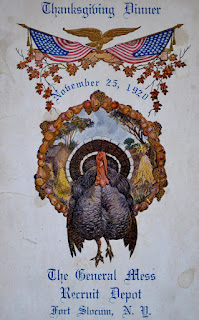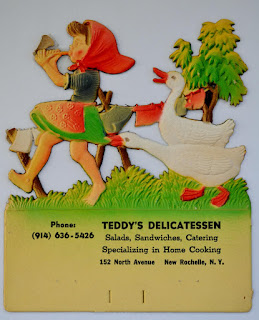Samuel Johnson, the preeminent literary figure of the 18th century, once organized a collection of materials from the library of the Earl of Oxford known as the Harleian Miscellany. In doing so, Johnson spoke up for the importance of preserving "small tracts and fugitive pieces," that is, ephemeral pamphlets that are more likely to be discarded than preserved. On the contrary, Johnson insisted, such "fugitive" pamphlets constitute a vital part of a library collection. He went even further, stating with great emphasis that such tracts "preserve a multitude of particular incidents, which are forgotten in a short time...and which are yet to be considered sparks of truth, which, when united, may afford light in some of the darkest scenes of state."

Sparks of truth! What a fascinating phrase! The Archive of the New Rochelle Public Library has its own collection of pamphlets that deserve recognition as the "sparks of truth" that illuminate the history of New Rochelle. Our collection of pamphlets is gathered into a group of records call the Publications Collection. In this collection are the ephemeral pamphlets, brochures, and printed notices that document our social and cultural life through the course of two centuries. Over the years, the Library staff has built up a collection of hundred of pieces of printed literature. Many items have been generously donated by history-conscious city residents who find an old trunk in the attic with their own fugitive pieces. The Publications Collection includes historical programs for anniversaries and special occasions, stage coach schedules, periodical publications such as the magazines They Say and The Tatler, church bulletins from our many churches, concert and graduation programs from our schools, exhibit programs of the Library, journals for annual Police Department benefits, offprints of scholarly articles about Thomas Paine, auction notices, industrial catalogues, street maps, a variety of printed city codes that regulate traffic, building, plumbing, and civil service - the list goes on and on. To make sense of this miscellany is the business of archives, and we now have the archival collection of printed materials organized into logical categories known as "archival series" described in a finding guide to the entire collection.
Found among this historical bounty of printed matter are some unexpected items; for example, a bookplate of Carrie Chapman Catt; a musical score for City Alive, the official song of New Rochelle; an invitation to a cruise sponsored by the Quahaug Club, dated 1865; a report card of a high school student from 1945; and two of Norman Rockwell's "Four Freedoms" posters. There are also many brochures in French relating to La Rochelle, France, our "sister city" which launched the migration of Huguenots who landed on the shore of what became the City of New Rochelle. Samuel Johnson claimed that there are many advantages to maintaining such a collection of printed literature or "flying sheets." The obvious advantage for us today is that the Library makes accessible for study a great stream of occasional documents that collectively portray the scintillating historical landscape of our city that we can all claim as our own "sparks of truth."
Images (In Order of Appearance):
1. A Guide to New Rochelle and Vicinity by Robert Bolton / 1842
2. Thanksgiving Dinner Menu / Fort Slocum / 1920
3. National Airmail Week / Commemorative Envelope / 1946
4. Advertising Brochure for Greater La Rochelle, Our “Sister City” in France / 2016
5. Calendar Illustration for Teddy’s Deli / c. 1960s
6. Library Exhibit / Association of Women Painters and Sculptors / 1915
September 3, 2020 / David Rose / New Rochelle Public Library Archives






No comments:
Post a Comment